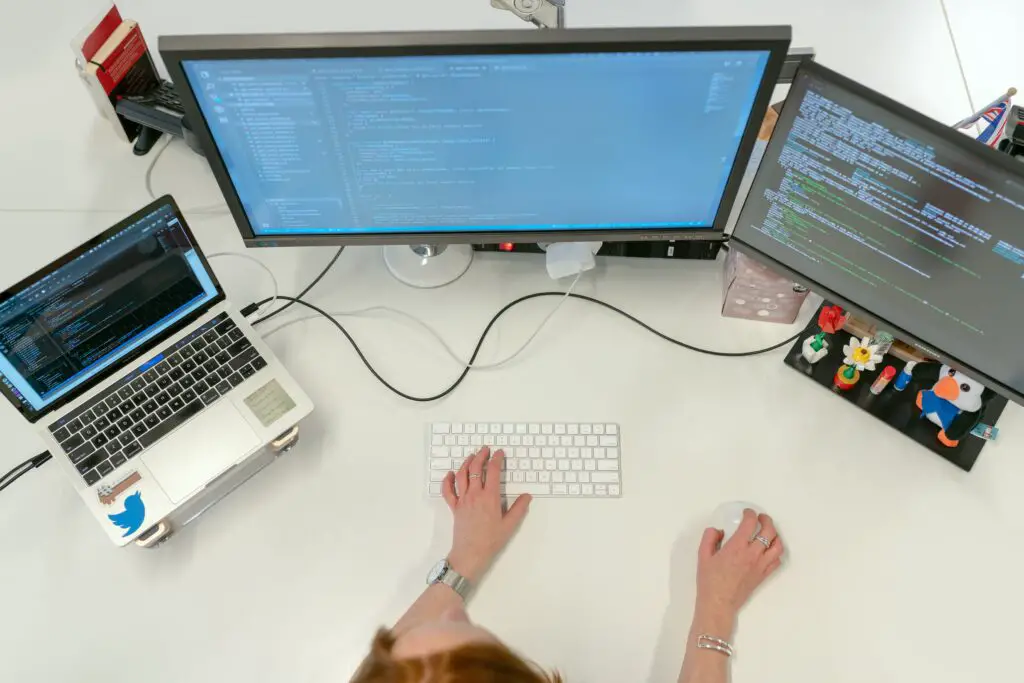Unlocking the Power of Computer Vision:
A Comprehensive Guide to Installing OpenCV on Ubuntu 18.04
In the vast realm of computer vision, OpenCV stands as an indispensable tool, enabling developers and researchers to harness the potential of image and video analysis. If you find yourself navigating the Ubuntu 18.04 landscape and seeking the compass to integrate OpenCV seamlessly, you’ve landed on the right digital terrain. This guide is your gateway to unraveling the intricacies of OpenCV installation on Ubuntu 18.04, paving the way for a journey into the captivating world of computer vision.

Prelude to Installation:
Preparing Your Ubuntu Environment
Before embarking on the OpenCV installation odyssey, it’s crucial to ensure that your Ubuntu 18.04 environment is primed and ready. Like a painter preparing a canvas, you’ll need to update and upgrade your system. In the terminal, execute the following commands:
sudo apt-get update
sudo apt-get upgradeThis ensures that your system is equipped with the latest packages, ready to embrace the forthcoming OpenCV installation. Think of it as tuning your instruments before a symphony — precision and harmony are key.
Additionally, fortify your system with essential dependencies by executing:
sudo apt-get install build-essential cmake git pkg-configThis step lays the foundation for the OpenCV installation, akin to setting up the scaffolding for a grand architectural masterpiece.
Building Bridges:
Installing Required Libraries and Packages
Just as a bridge requires sturdy pillars to stand resilient against the test of time, OpenCV relies on certain libraries and packages to fortify its capabilities. Begin by installing the required image and video I/O libraries:
sudo apt-get install libjpeg-dev libpng-dev libtiff-devThese libraries serve as the bedrock for OpenCV, ensuring seamless image and video handling. As you weave through the installation, envision yourself as a digital architect, carefully selecting the materials that will construct the edifice of OpenCV on your Ubuntu canvas.
For optimal multimedia support, add the GStreamer libraries to your toolkit:
sudo apt-get install libavcodec-dev libavformat-dev libswscale-dev libv4l-devThese libraries act as the silent choreographers, orchestrating the multimedia symphony that OpenCV conducts. Your Ubuntu environment is now not just a canvas but a stage, ready to host the dazzling performance of computer vision.
Pythonic Alchemy:
Integrating OpenCV with Python
Python, the elegant language of algorithms and scripts, plays a pivotal role in the OpenCV ecosystem. Like a maestro conducting a grand orchestra, you must synchronize Python with OpenCV to produce a harmonious composition. Begin by installing the Python development tools:
sudo apt-get install python3-devThis toolset transforms your Ubuntu environment into a haven for Pythonic ingenuity, paving the way for a seamless OpenCV integration. The harmony between Python and OpenCV is akin to the dance of fireflies on a summer night — seemingly chaotic but inherently synchronized.
Next, install the NumPy library, the unsung hero that facilitates numerical operations in Python:
sudo apt-get install python3-numpyNumPy, the quiet virtuoso, provides the mathematical foundation that supports the complex symphonies of image processing and computer vision orchestrated by OpenCV. With Python and NumPy as your allies, the stage is set for a performance that transcends mere computation.
CMake Sorcery:
Configuring and Generating OpenCV Makefiles
As you stand at the crossroads between preparation and execution, CMake emerges as the sorcerer, wielding its magic to configure and generate the Makefiles essential for OpenCV’s installation. Navigate to the directory where you’ve downloaded the OpenCV source code and execute:
mkdir build
cd build
cmake ..This ritual summons the forces that will mold OpenCV into a formidable entity within your Ubuntu realm. The CMake invocation is the incantation that sets the wheels in motion, converting lines of code into a tangible manifestation of computer vision prowess.
Now, engage the Make command to commence the installation enchantment:
make -j4The ‘-j4’ flag unleashes parallel magic, accelerating the installation process. Witness your Ubuntu environment metamorphosing into an arena where code transcends the digital, materializing as a robust OpenCV infrastructure.
Culmination:
The Installation Finale
As the curtains draw near on this installation saga, execute the final command to install OpenCV:
sudo make installThis command is the crescendo, the culmination of your efforts as you bestow upon your Ubuntu environment the transformative capabilities of OpenCV. It’s not just an installation; it’s the birth of a new era, where images and videos become data symphonies awaiting your conductor’s baton.
With this final stroke, you’ve successfully woven the fabric of OpenCV into the tapestry of your Ubuntu 18.04 canvas. Your environment is now an expressive palette, ready for the strokes of computer vision artistry.
Embark on this journey with confidence, armed with the knowledge to seamlessly integrate OpenCV into the Ubuntu 18.04 ecosystem. As you traverse the landscape of computer vision, let this guide be your companion, illuminating the path toward unlocking the full potential of visual data analysis. May your code be elegant, your algorithms be robust, and your vision be boundless. Happy coding!
